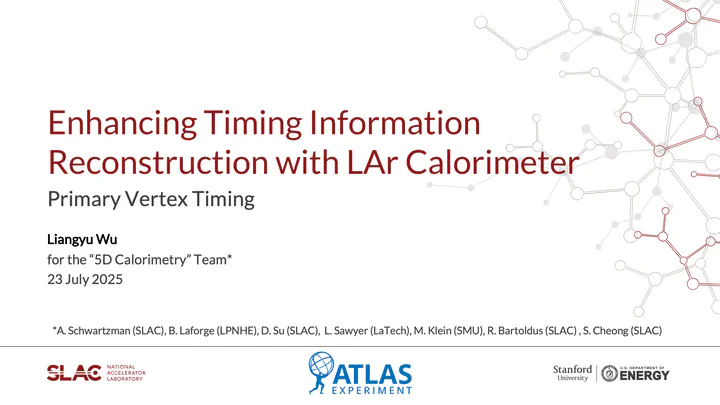Enhancing Timing Information Reconstruction with LAr Calorimeter
Jul 21, 2025· ·
0 min read
·
0 min read
Liangyu Wu
 Primary Vertex Timing
Primary Vertex TimingAbstract
The HGTD detector will play a key role in utilizing fast-timing information to suppress pileup effects in the forward region. On the other hand, the LAr calorimeter presents a significant opportunity to expand the HGTD capabilities in topologies with central or central-forward jets, thereby enhancing the application of fast timing in ATLAS. The LAr Calorimeter exhibits excellent intrinsic resolution, and its widespread presence can significantly enhance overall timing performance. However, achieving and fully integrating sub-100 ps LAr time resolution presents substantial challenges due to two key experimental issues: first, the presence of cross-talk and timing calibration effects not represented in the simulation; and second, the impact of pileup contributions to cells, which complicate the isolation of the correct hard-scatter vertex time (vertex t0). In this presentation, I will focus on recent progress in determining the vertex t0 in simulated data, addressing the impact of pileup, and discussing potential limits of performance. I will also briefly discuss ongoing efforts in ATLAS to overcome cross-talk issues and outline the next steps to tackle data-specific challenges.
Date
Jul 21, 2025 — Jul 23, 2025
Event
Location
U-M Physics Department
450 Church St, Ann Arbor, MI 48109